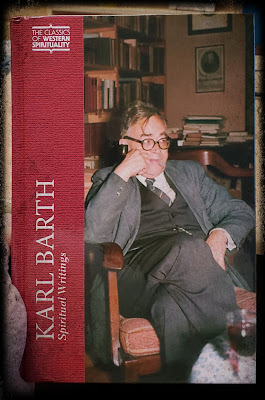Tweeting Christine Tietz's "Karl Barth: A Life in Conflict"
It took me longer than I would have liked to take it up and read, but I have now worked my way through Christine Tietz's Karl Barth: A Life in Conflict . It is very good. In fact, reading it prompted me to update my guide to reading Barth (which I origianlly wrote in 2007 and haven't updated since ~2013) in order to include it: So, You Want To Read Karl Barth? . Very early in the process of reading Tietz's book I realized that I would want to share about the volume. So I decided to tweet my way through it. And below I have pulled together all those tweets for folks who may have seen one or two and wondered about the rest, folks who might be interested but aren't on Twitter, etc. Enjoy reading, and then go but the book! Chapter 2 tweet for Tietz's #KarlBarth biography: I love and am not surprised by this insight into Barth as a student: "In general Barth was a neat student. He had his lecture notes and excerpts of biblical texts and theological works...




